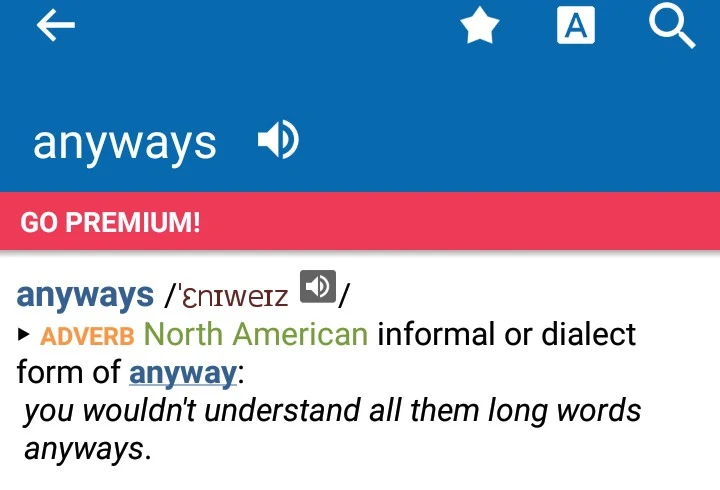"Anyways" and
"Anyway" convey the same meaning, but the use of the former in
certain context is most especially frowned at. In casual conversations, some
people use anyways, and
we often gloss over it. But in formal writings or conversations, no allowance
is given for anyways; the
acceptable form is anyway.
Anyway is an adverb. It
can be used to mean "in spite of", "in any case"
"whatever else is happening, without considering other things" etc.
Examples
i. The test was very
difficult, but I passed anyway.
ii. I didn't expect him
to give me his book, but I asked for it anyway.
In conversation, anyway is
also used to change the subject, return to an earlier subject, or get to the
most interesting point. For example, "Anyway, as I said, I'll be
away next week."
Anyway is also used to
give a more important reason for something that you are saying. For
example, "I don't have time to go, and anyway, it is too expensive."
In this example, although the speaker has two reasons why he does not want to
go (or perhaps attend the event), his main reason is the cost (of
the event). And he is able to project this point by using the word anyway.
In the examples given
above, you can make use of anyways provided that you are not
writing for a formal audience or engaged in a formal conversation. This is
because anyways is the nonstandard form of anyway;
it is a form that is peculiar to North American English speakers but has fast gained
prominence in the mouths of many English users. Let's look at some sentence
examples where anyways is used.
Examples
i. Who does that guy
think he is anyways?
